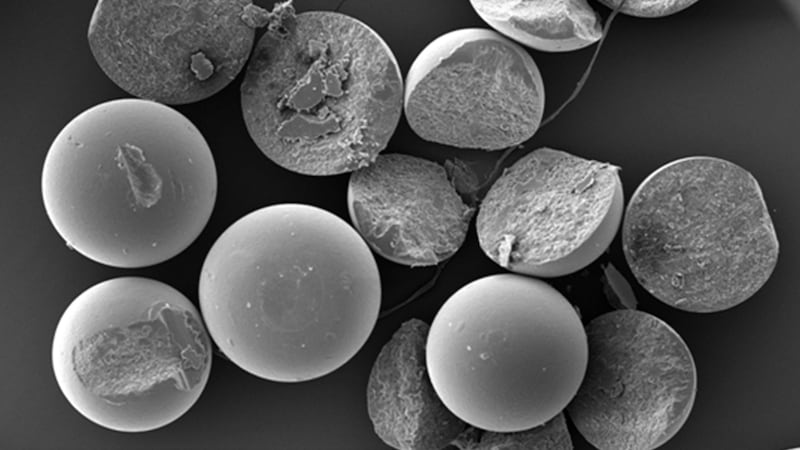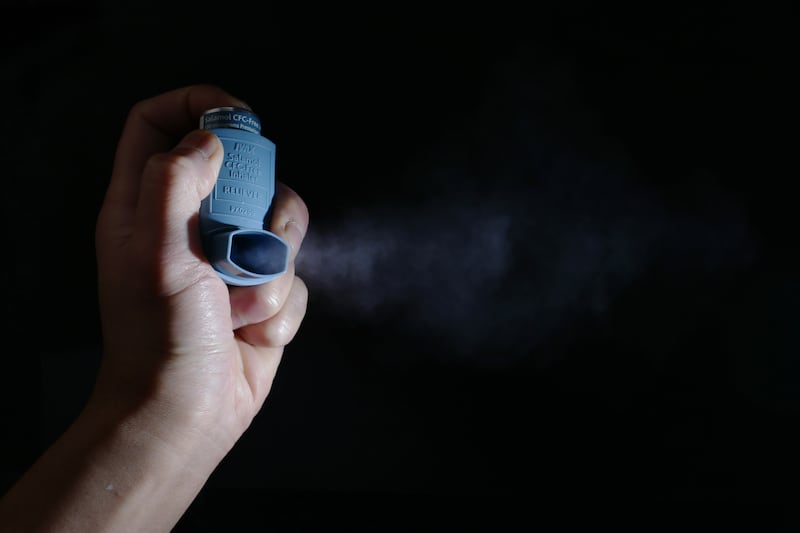A university-based start-up is developing a biodegradable alternative to plastic microbeads.
Last year, microbeads were banned from shower gels and toothpaste in the UK – but could still be found in sun cream and cosmetics.
An estimated 30,000 tonnes of microplastics from consumer products end up in the oceans every year – the equivalent of the plastic pollution generated by five billion plastic bottles.
Some of these microplastics are eaten by marine life, passing up the food chain and being eaten by humans.
Microplastics are pervasive from the surface to the seafloor and are probably entering the food chain.https://t.co/iTOfx7wHg8
— Naturbeads (@Naturbeads) June 24, 2019
Start-up company Naturbeads, which is based at the University of Bath, is developing biodegradable microbeads made from cellulose and has been awarded more than £500,000 to build a prototype.
They are made using a solution of cellulose – which is forced through tiny holes in a tubular membrane – creating spherical droplets of the solution that are washed away from the membrane using vegetable oil.
The beads are then collected, set and separated from the oil before use.
The biodegradable microbeads could reduce microplastic pollution and mean that traces from sun cream and cosmetics will not end up in fish fingers.
Naturbeads was founded in 2017 by Professors Janet Scott and Davide Mattia and Dr Giovanna Laudisio.
The company will receive £582,842 from the Plastic Research and Innovation Fund, which is being backed by the UK Research and Innovation and Sky Ocean Ventures.
Jamie Rowles, head of investment at Sky Ocean Ventures, said: “Despite some legislative bans, harmful plastic microbeads are still in a range of products and continue to leak into our environments.
“Finding equivalent replacements to these types of low-cost plastics has been a challenge for industry.
“By investing in Naturbeads, we are able to support a highly innovative technology and a passionate entrepreneurial team that is aiming to provide a biodegradable alternative that can perform like plastics and ensure the many products do not leave harmful residues in our environments for longer than nature intended.”
Prof Mattia added: “Our microbeads are produced using cellulose, the most abundant bio-material on Earth, and what plants and trees are made of.
“We are excited to see our technology deployed commercially and to contribute to reducing plastic pollution in our oceans.”








